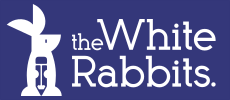I began my job search at the beginning of my last semester in college. A stressful task, but one that turned out far more daunting than I anticipated. I started looking early. I did well in school. I wasn’t picky. I’ll get this sorted out soon, right? No. I was very wrong.
Well, over a year later I had yet to find a full time position in one of the many fields I was interested in. I continued to work part time positions in which my bachelor’s degree was unnecessary. This was not without trying. I applied for hundreds of positions and followed all the advice I’d been given, like checking job posting websites and the sites of individual companies as well. I spoke to career counselors at my university. I also had various types of resumes for my different areas of study and customized them to match the descriptions of each individual position.
Through all of that, I received only a handful of interviews. And for every twenty applications I submitted, I received maybe, three emails back from hiring managers. They would thank me for my interest but let me know that they had, “decided to pursue other options at this time.” As for the other seventeen? Radio silence.
Is anybody hiring?
The most frustrating part of this is that my job hunting experience is not unique. According to the New York Federal Reserve, 28.4% of Americans polled are looking for a job. Yet, it seems that companies are having a hard time filling open positions. The length of time it takes for an opening to be filled peaked in 2022 but has not gone down to post-pandemic levels. Now it is taking around a month and a half to hire someone, when in the fall of 2019 it took only one month. Clearly, companies are finding it harder to fill empty roles.
AI: friend or foe
Artificial intelligence has been growing in its importance to the job hiring process for years now. The general belief is that AI would make hiring easier and more efficient. In practice, it’s harder on job seekers.
Before any person is able to look at these resumes, AI filters through them and tosses out those that don’t contain enough of the keywords it’s looking for. Simple differences in wording can cost an applicant an interview. AI can also be too strict when it comes to scanning for requirements. Very few applicants are able to meet every single point hiring managers add to their job postings. Yet, AI often denies applicants who don’t fit an extensive list of requirements perfectly.
Another way AI falls short of expectations is bias. When AI services were first hitting the job search market, it was believed to be a great way to sidestep human biases that interfere with finding the best applicants. Now we know that AI is subject to the same biases as humans are. Artificial intelligence programs can inflict the same prejudices against age, race, and gender that human beings are capable of when choosing who to hire. Amazon had to stop using an AI program in hiring because it was shown to prefer words used more frequently by men in their applications. It also penalized those who had written the word “women” anywhere in their resume.
Long hours, low pay
When scrolling through LinkedIn or Indeed, what do you see? We’ve established that companies are looking to hire, but are their job postings worth applying to? Many Americans are looking for a job, but are not willing to accept low pay, little benefits, or an inflexible schedule. Employers are expecting job seekers to settle for less and not even bothering to offer a livable wage in return.
One of the most glaring examples of this is the remote working issue. The pandemic proved to workers that all those meetings really could have been emails, and working from home was entirely possible if that is what they wanted to do. A lot of Americans are looking for remote or hybrid positions now that they know companies can facilitate it. Remote work is far more convenient for many people. But, a large portion of employers are pushing to return to the office now that COVID precautions have lessened.
Hiring without training
Another reason a lot of people get passed over for jobs is that hiring managers are looking for applicants they don’t have to train. They don’t want to risk investing time and resources into training someone who might not do well. This makes it harder for people to move up in their careers or transfer to a different field altogether. Someone might apply for a technical writing job after getting a degree in writing. But, if their current job is in sales that might diminish their chances of getting hired.
You’ve been ghosted
Ghost listings are fake job opportunities that have become very popular online. These listings are a huge reason why people are having a hard time getting hired. Out of all the companies who do this, “45% posted between one to five fake job listings; 19% posted 10; 11% posted 50; 10% posted 25; and 13% posted 75 or more” (Cerullo for CBSNews).
From entry to executive level positions, job searchers are being fooled and having their time wasted by companies with no intent to hire anyone. The reason they do this is to influence their employees and investors. Posting ghost listings to make their employees happy that they will soon have help to lighten their workload, buys companies more time to save money running on a skeleton crew. On the other hand, ghost listings could be used to threaten their current employees into working harder if they don’t want to be replaced.
These fake job listings make the company look like it’s growing. A growing company equals a profiting company. Ghost listings have the additional benefit of signaling to investors that the company is doing better than it actually is. This allows them to get more funding at their applicant’s expense.
A shift in standards
The constant cycle of applying and waiting is exhausting. The bottom line is that companies want to save money. Whether that comes in the form of reducing training, understaffing, or having low pay and benefits, it hinders job searchers all the same. People argue that everybody’s hiring. Maybe that’s what it looks like on paper, but we’re still not recovered from when the job market plummeted during COVID-19. Going back to the way it was before is simply not an option. Hiring managers are living in the past with outdated practices and standards for employment.
Check out:
Angry Politics and Vulnerable Voters
“All of Us Strangers” and Straight Actors Playing Queer Roles




















As someone who has turned 50 three times and has been looking for work since April, I appreciate your article and empathize. I have a PhD, and I’m applying for jobs that pay $20 per hour and getting rejected or ghosted. It is brutal; I struggle to keep my confidence and hope intact. I have redone my resume so many times and paid to have it redone and reduced to one page (I have a 20-page CV), and it still is not hitting AI reviews correctly. I was shown how AI presented the info to one applicant recently, and it is a shit show. I kid you not. Applying for one job requires hours and sometimes days of my time, with the online testing components often required now. My scores put me in the top 10 percent or better, but no one ever follows up. And don’t get me started on the hours it takes to write a new cover letter for each application.
What research tells us is that historically, one’s social capital via access to various social networks, including family, is the number one way people land jobs, not through job postings. I’d have to check to see if that’s still accurate post covid, but assuming it is, it puts poor, working-class, and young job seekers at a significant disadvantage. So, we need to work our networks unapologetically if you have them. If you don’t, invest time in establishing them by joining groups and voluntary associations, requesting informational interviews with leaders in your desired field, doing an unpaid internship or volunteering your time, and asking your second cousins, twice removed, to write recommendation letters you can add to your LinkedIn profile (which you likely will need to draft). Ideally, you should have three to five. I’m also considering opportunities for communal living to reduce the insanely high costs of renting and buying and because living alone and working remotely has resulted in major isolation for me that is having adverse effects on my quality of life, like not leaving my apartment for weeks at a time. We need to make intentional efforts to stay connected. Keep the faith.